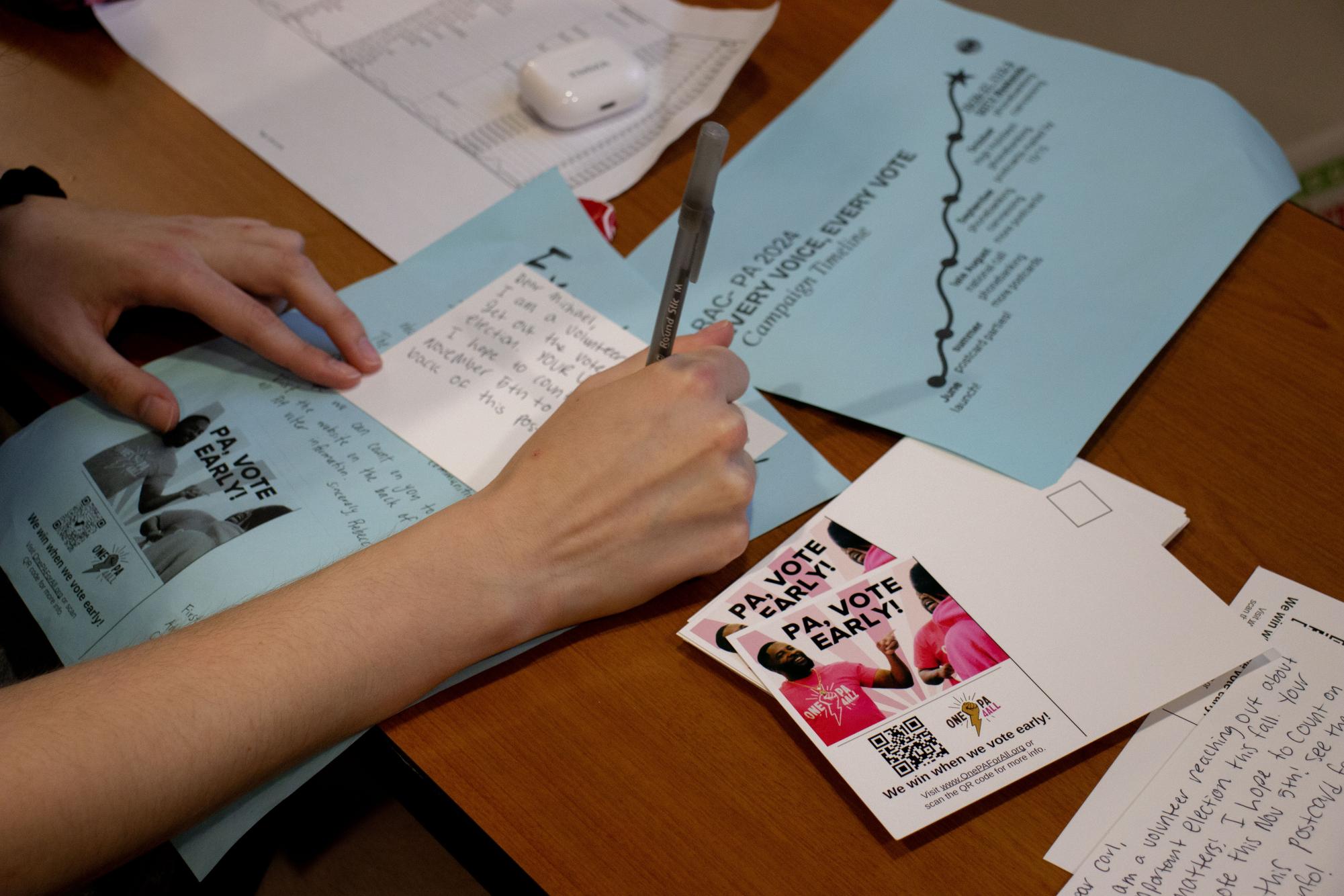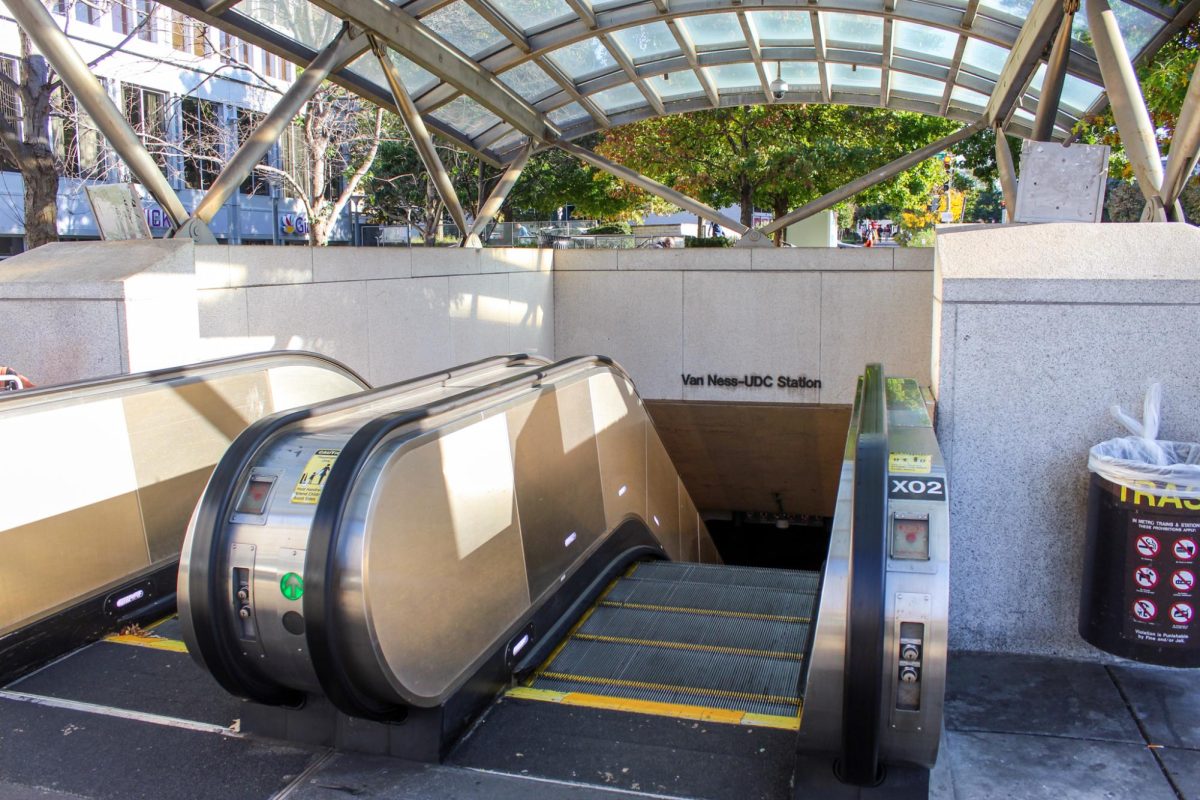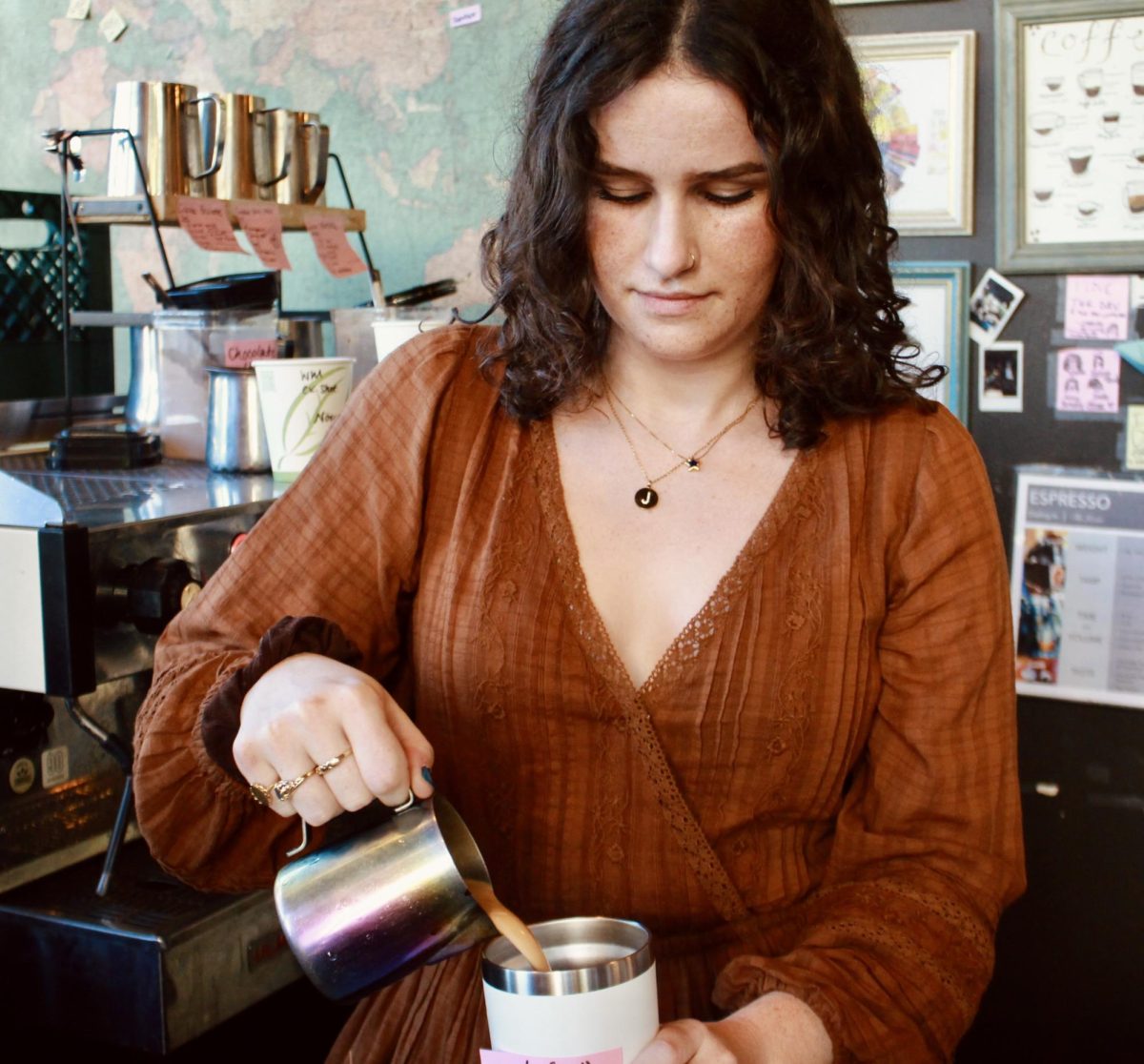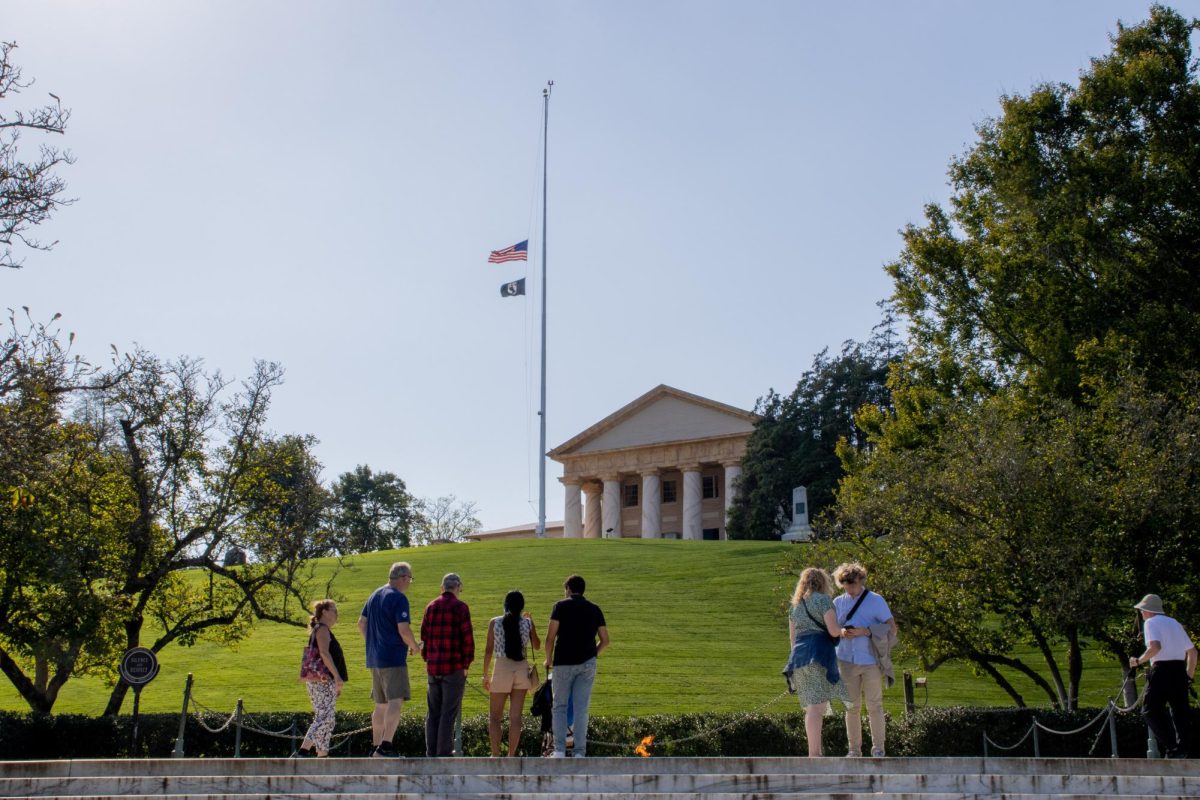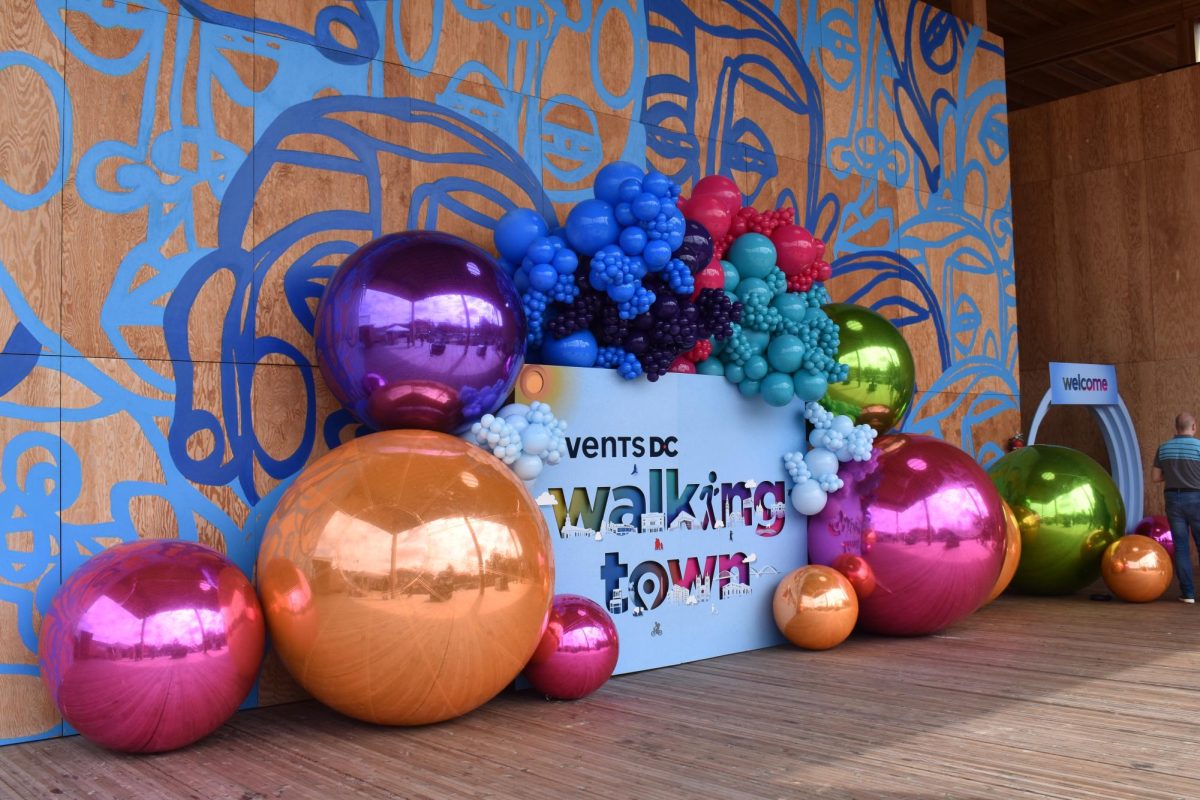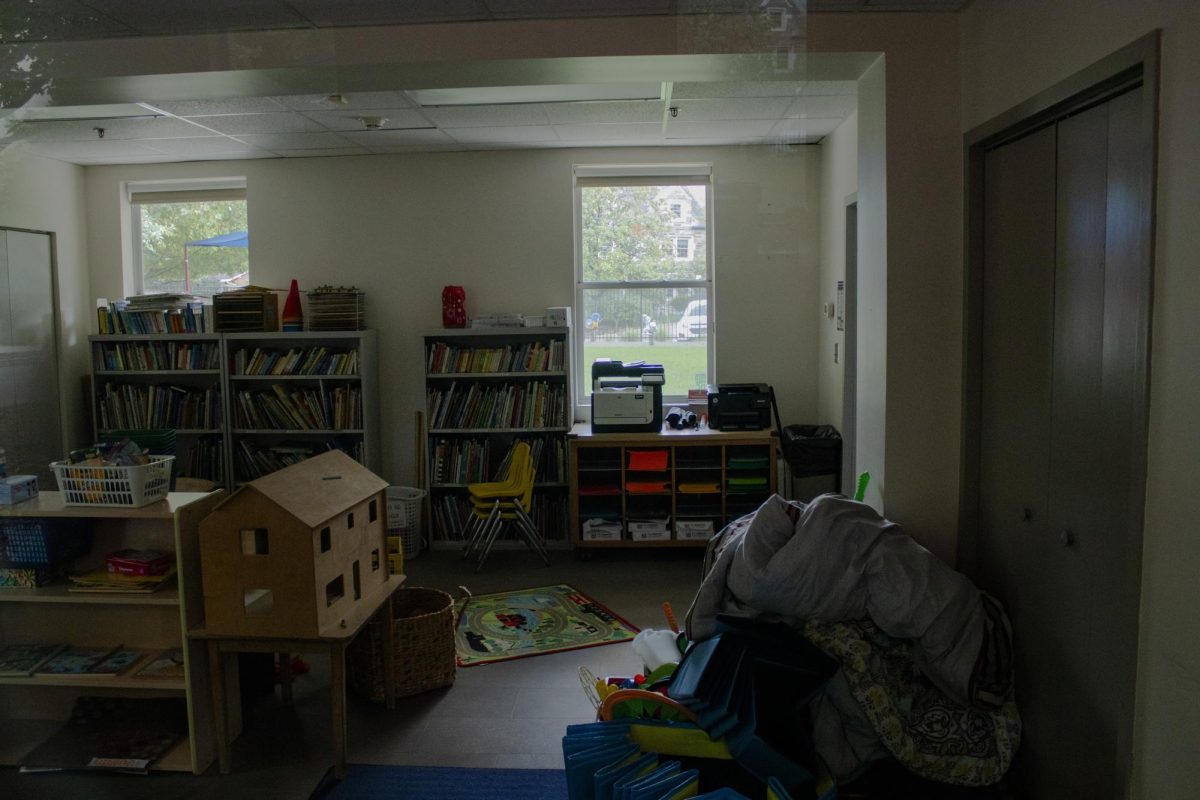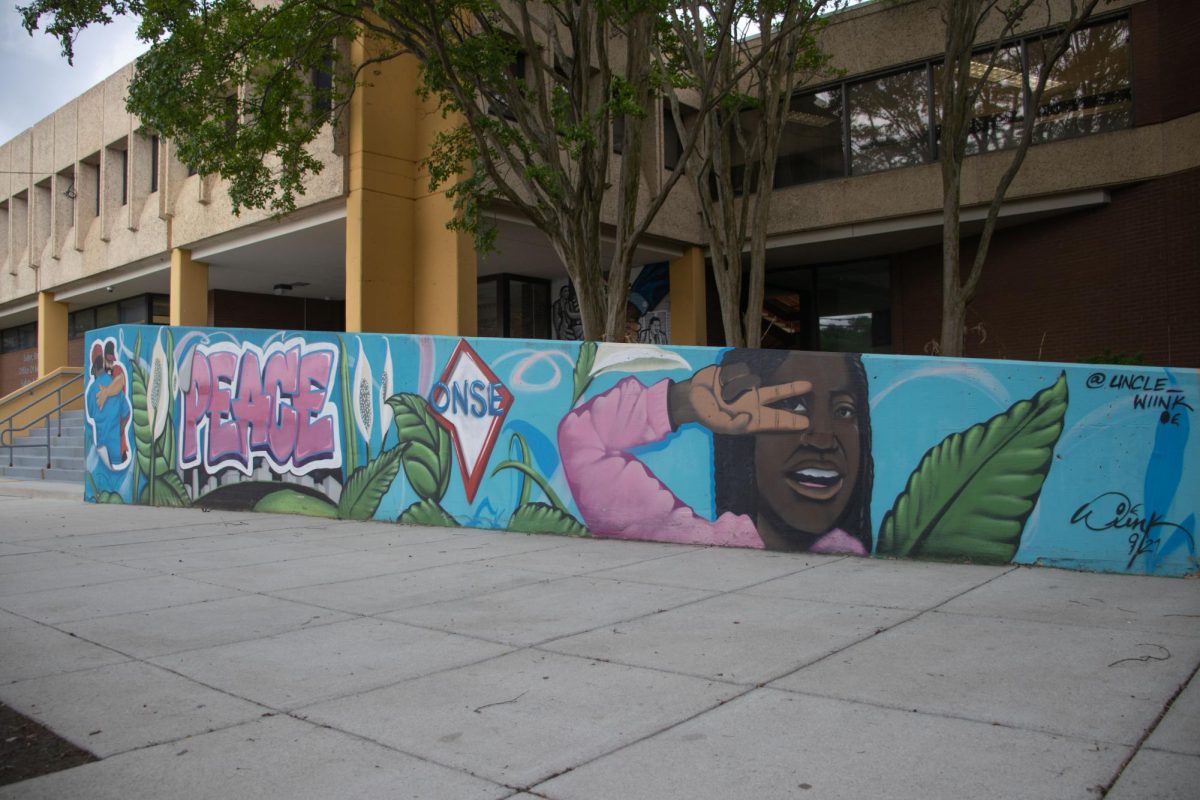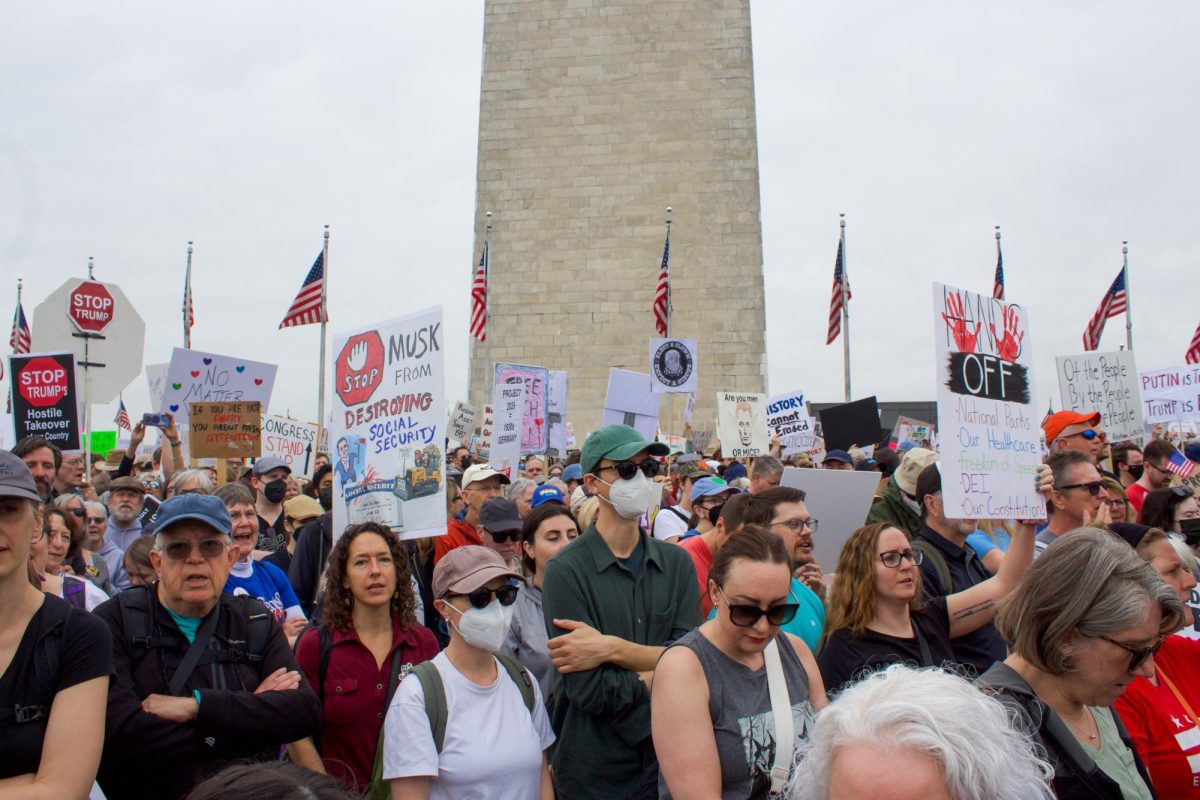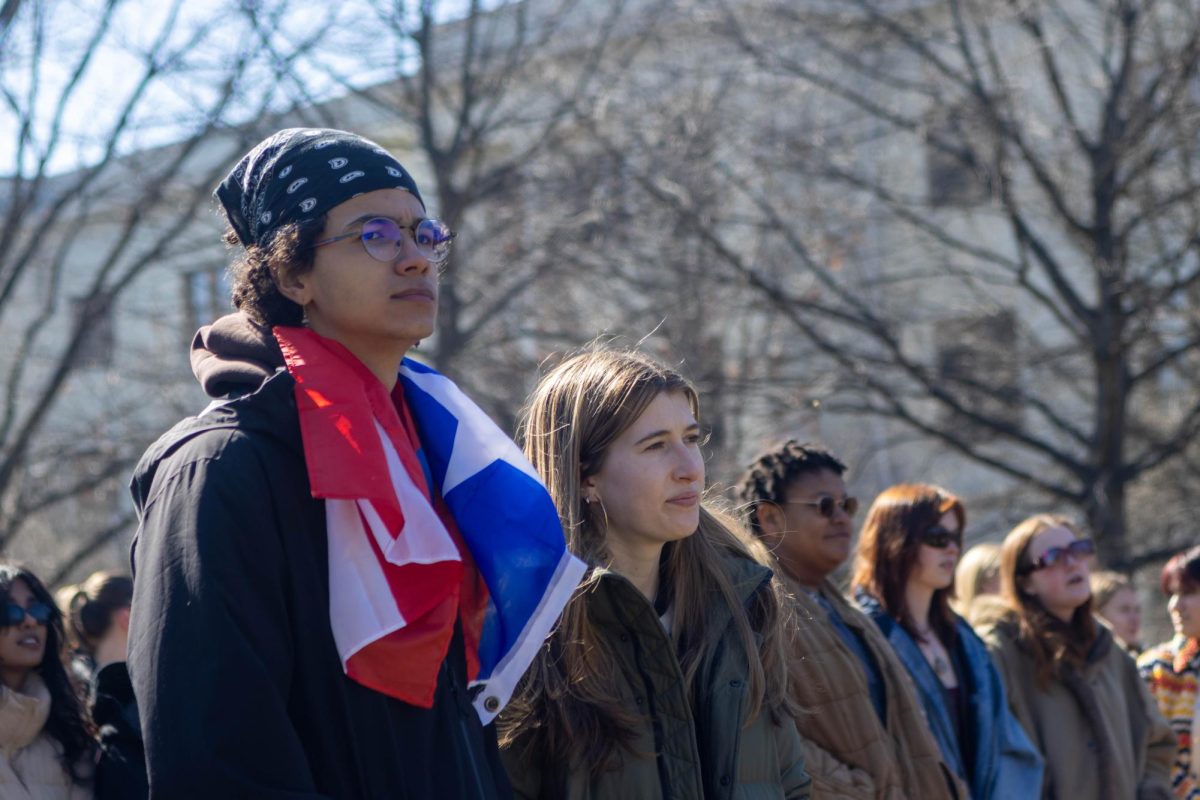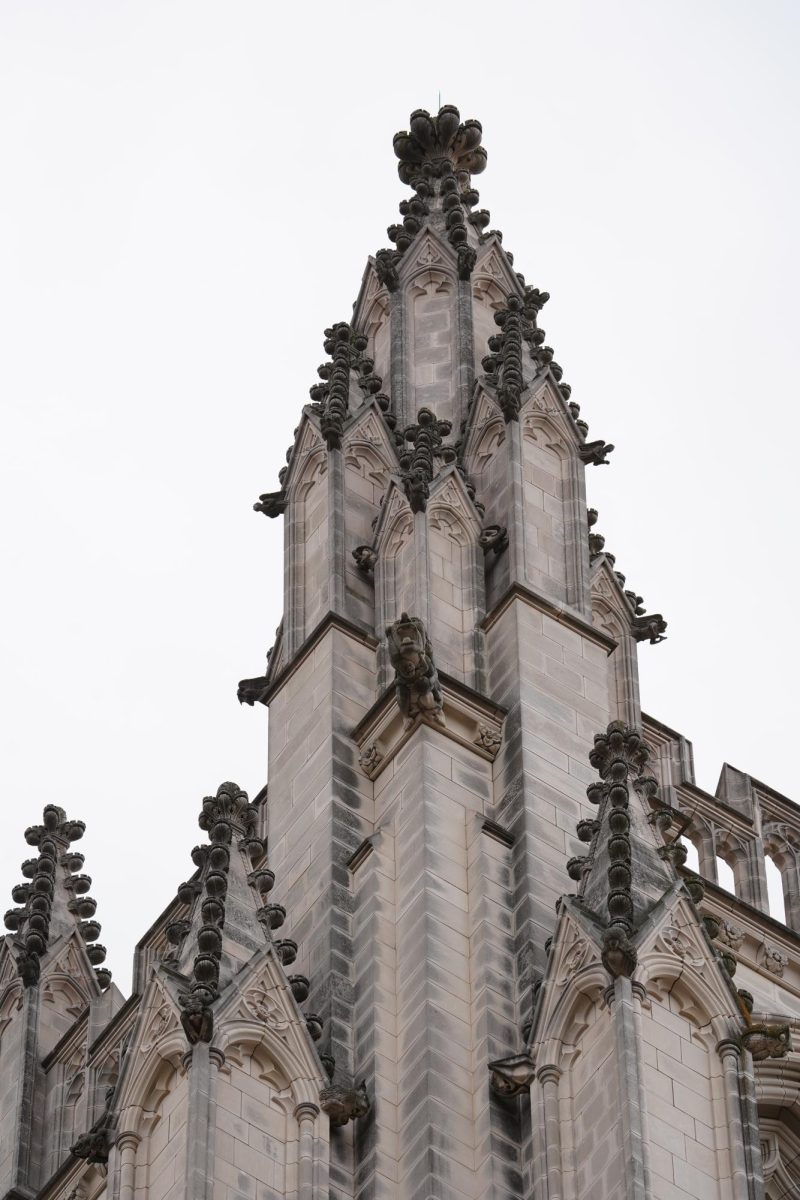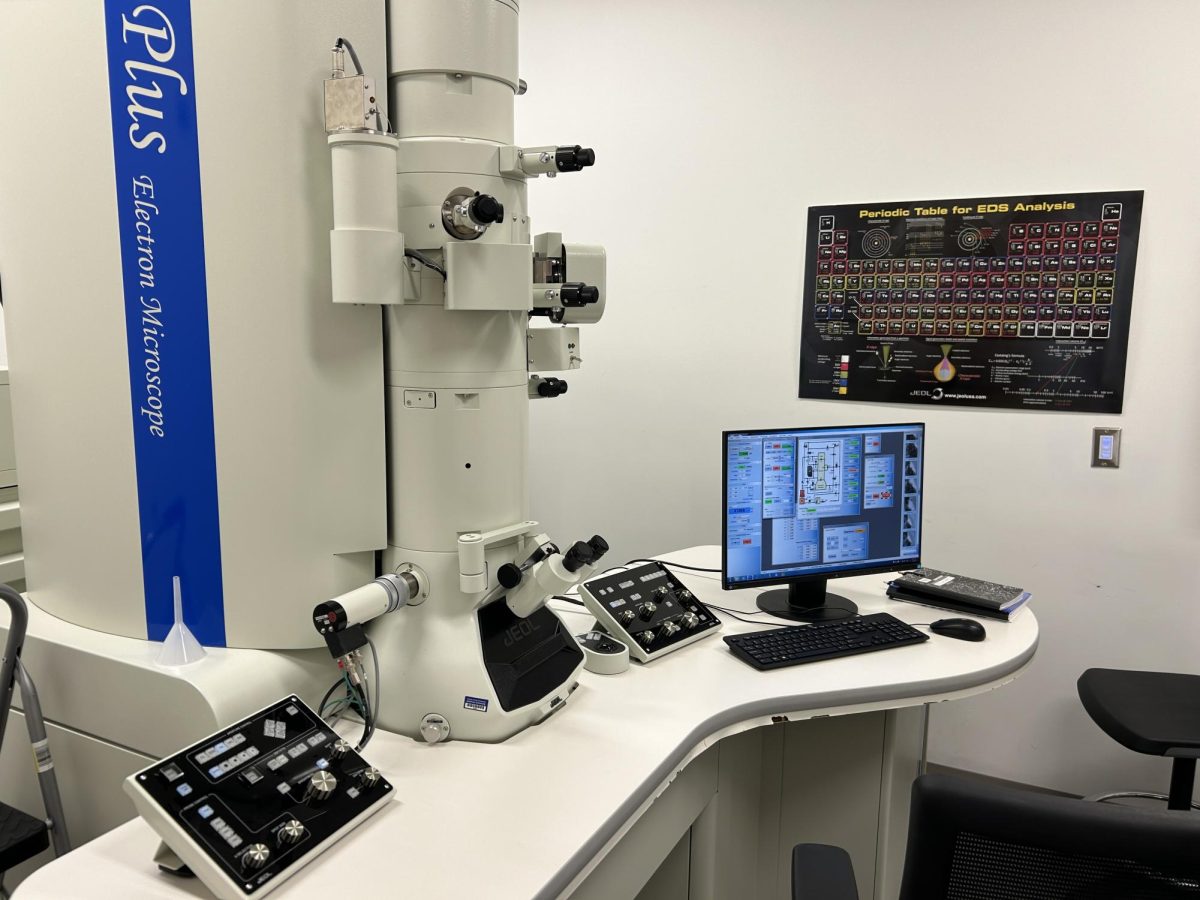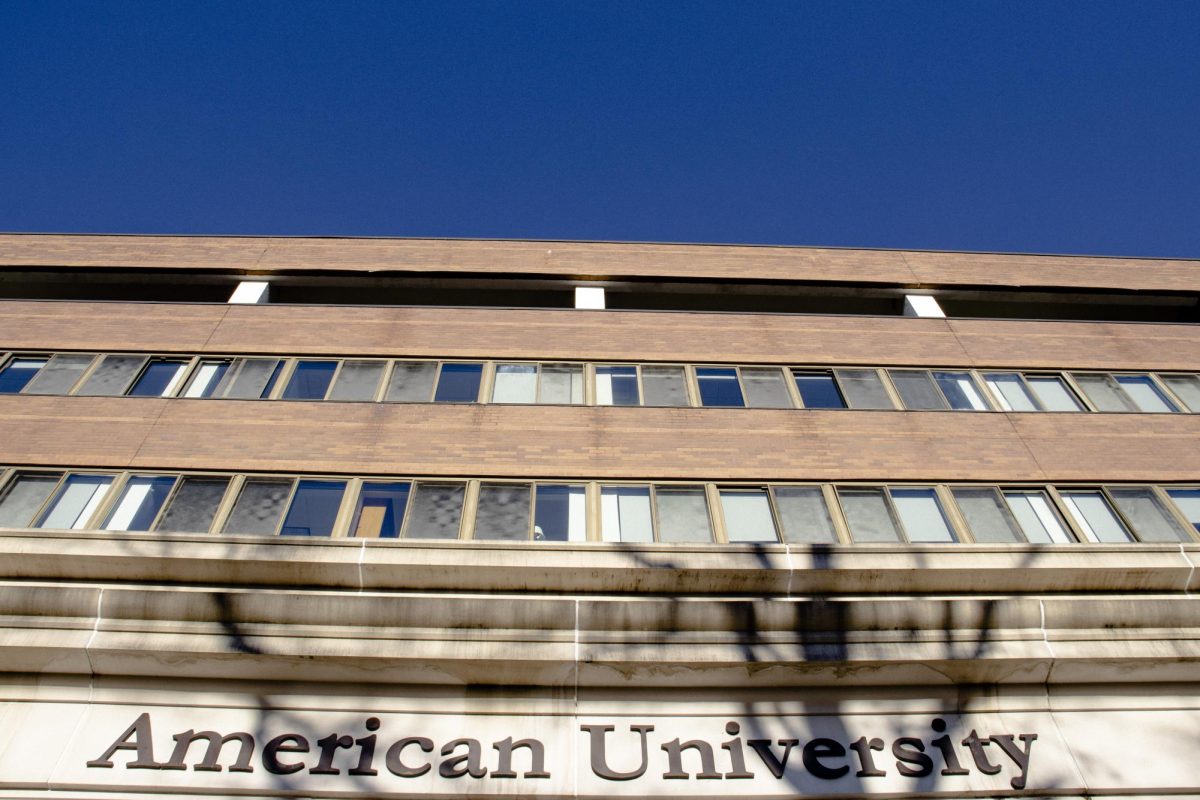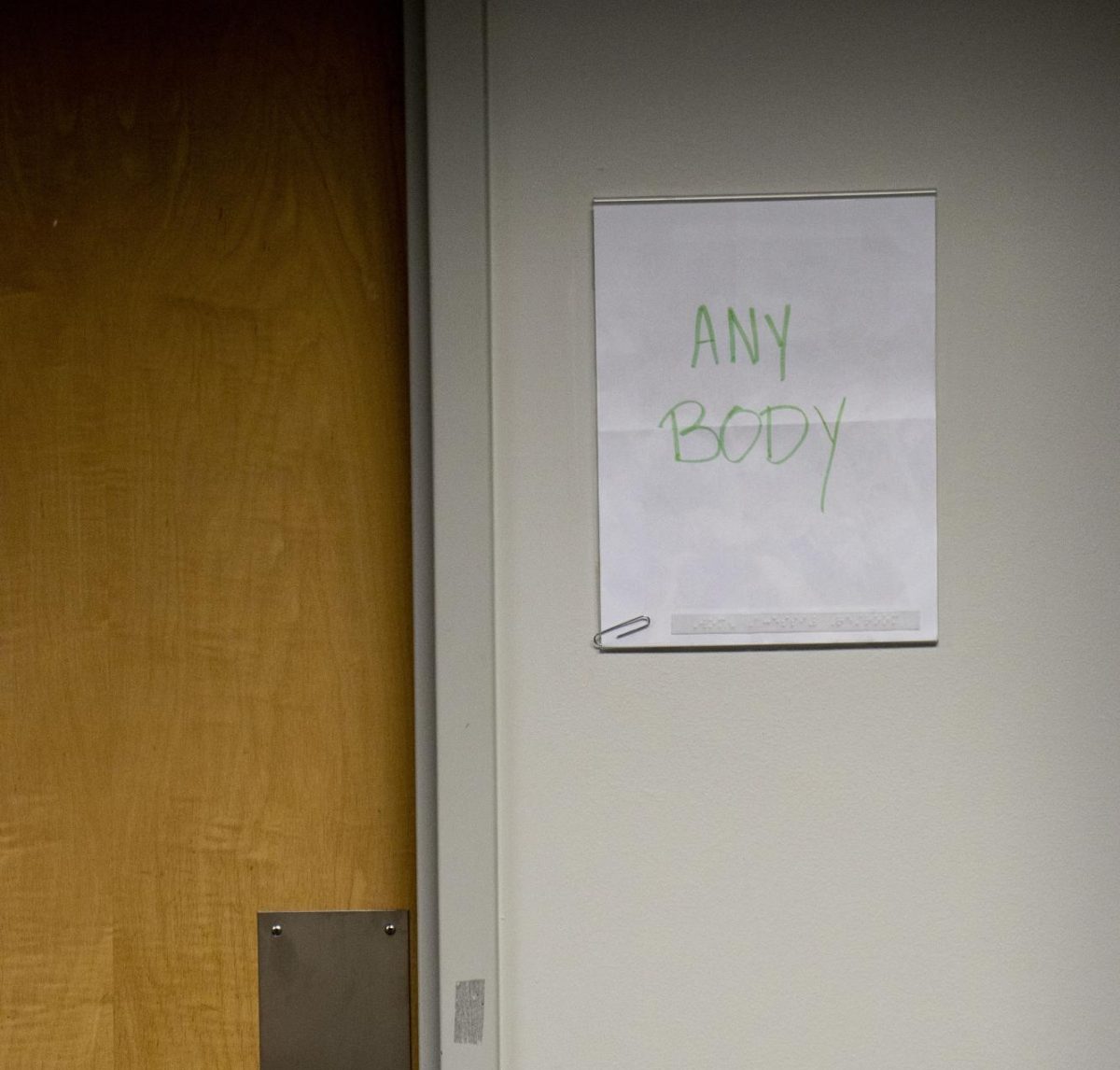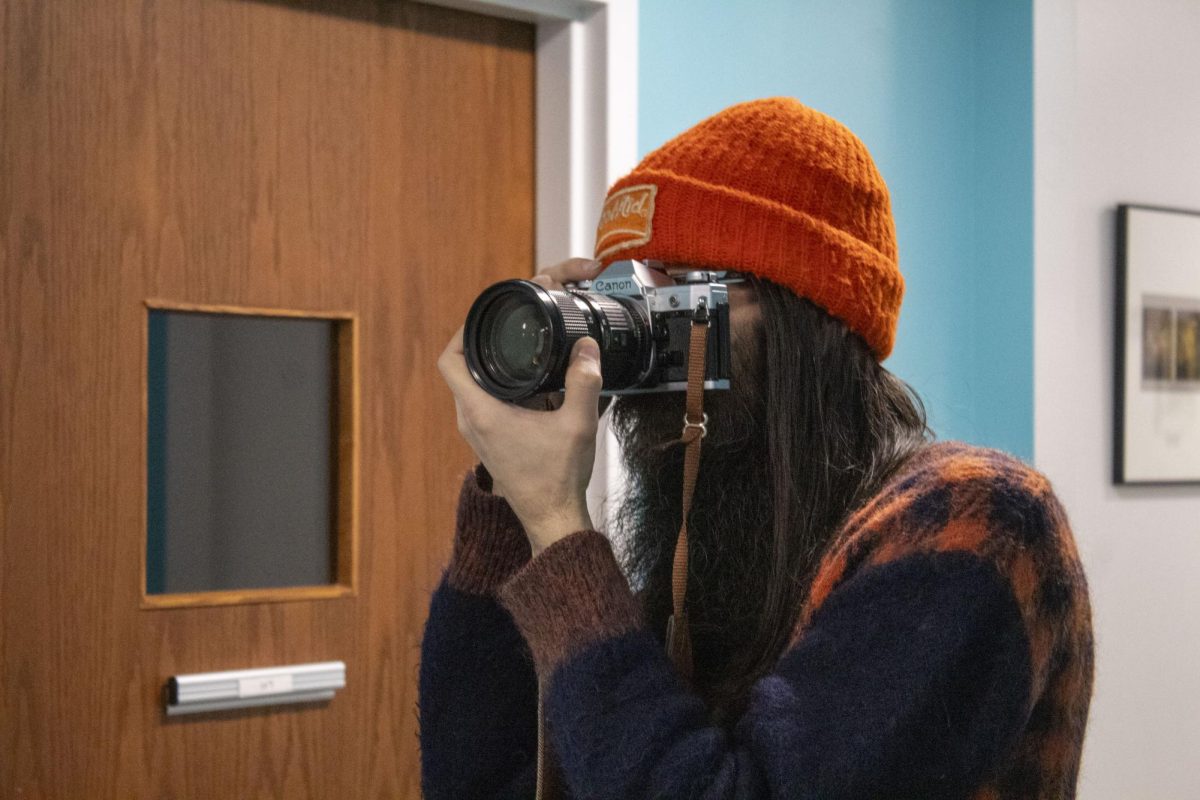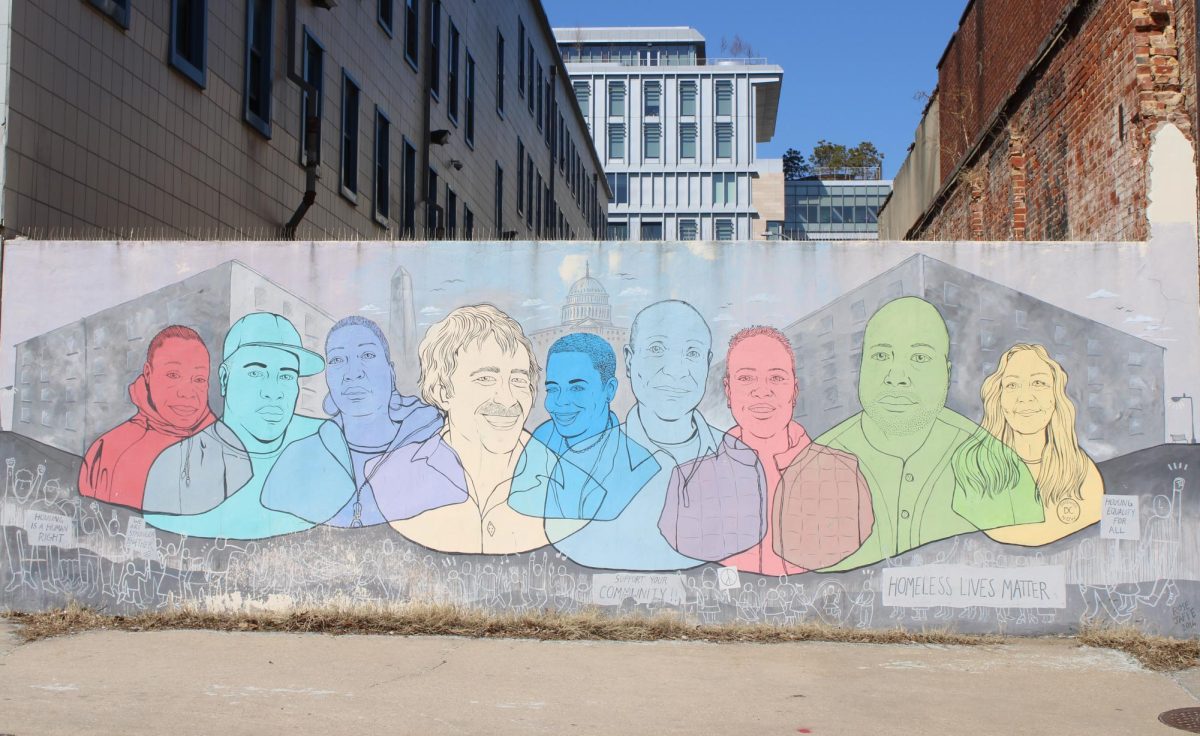Editor’s Note: This article was reported and written before election day, but has been published after.
Christina Eid, a junior at American University, said she planned to vote in the upcoming presidential election. She felt this year’s election was more important than others, with the highest office in the United States at stake.
“Although all of the elections are important, anytime it’s a presidential election year, it’s super important to make sure you go out and vote,” Eid said.
To participate in the election, Eid, along with many other AU students and voters across the nation, voted absentee.
Gwendolyn Reece, the director of Teaching, Research and Learning at Bender Library, said many AU students vote absentee because the district only has three electoral votes, according to the National Archives. While some students live in states that make it easier to vote absentee, some students had to overcome what can be a long, complicated and discouraging process before they were able to mail their ballot, Reece said. That came as some students balanced registering to vote in Washington and mailing their vote in their home swing state, processes Voters of AU and Bender Library helped them navigate.
Eid and over 800 AU students registered to vote absentee at Bender Library’s week-long absentee voting registration event that lasted from Sept. 16-20, according to Reece, the event’s organizer.
As students registered to vote and submitted their ballots at the event, Reece estimated that around 90% of students who attended the event would have had significant trouble registering to vote absentee on their own. She said the event helped students navigate each states’ absentee registration process.
Those processes can vary and be complicated for people to understand, Reece said, which she considers to be a form of voter suppression.
Voting absentee across states
Reece said she believes New Hampshire has the most complicated process for voting absentee. The state requires absentee voters to register in-person and bring an affidavit and a form with an absentee ballot request, an ID scan and a witness signature, according to the state of New Hampshire’s website. Reece said she thinks states like New Hampshire should follow in California’s footsteps by automatically sending a mail ballot to all registered voters.
“California sends a mail ballot to every one of their people, and the way to get it sent [to AU] is to go in, re-register and add in a different mailing address,” Reece said. “It’s all online, it’s really easy. And if they can do it, there’s no reason why any of these states couldn’t do that.”
According to the National Conference of State Legislatures, Colorado, D.C., Hawaii, Nevada, Oregon, Utah, Vermont and Washington state do the same as California, although Vermont does this only for general elections. According to the American University Academic Data Reference Book from the 2023-24 academic year, 21% of students across all degree levels lived in these states last fall.
Navigating mailing services
Cuts to the United States Postal Service made by former President Donald Trump-appointed Postmaster General Louis DeJoy link to voter suppression, according to the Brennan Center, a nonpartisan law and policy organization that strives to defend democracy in the United States. DeJoy cut overtime hours for USPS to save money during the COVID-19 pandemic shutdown, which significantly slowed the speed at which voters received mail-in ballots in the 2020 election, according to a report published by the Brennan Center in 2021. Many civil rights advocacy groups argued these cuts aimed to initiate voter suppression, not just save money, according to the report.
Even if students went through all of the correct processes to receive a ballot, there was no guarantee that their vote would be counted if they didn’t send in their ballot on time, Reece said.
Sending in an absentee ballot early makes it more likely that the vote will be received by the election date, according to the USPS website. Fifteen states don’t send ballots to voters until 30 days before the election. Thirteen others wait until 30-45 days before the election, according to the NCSL.
Mark Wahl, the strategic communications specialist for USPS in Fairfax, Virginia and the district, said before election day that USPS was dedicated to providing efficient mailing services for election-based mail using tactics that they’ve employed for past elections.
“Just as we have in past federal general elections, the Postal Service will deploy extraordinary measures designed to accelerate the delivery of ballots mailed close to election day,” Wahl said. “Those extraordinary measures will begin nationwide on Oct. 21, and will include additional collections, extra deliveries, special sort plans on processing equipment and local handling and transportation of ballots. These measures are consistent with our efforts in past elections.”
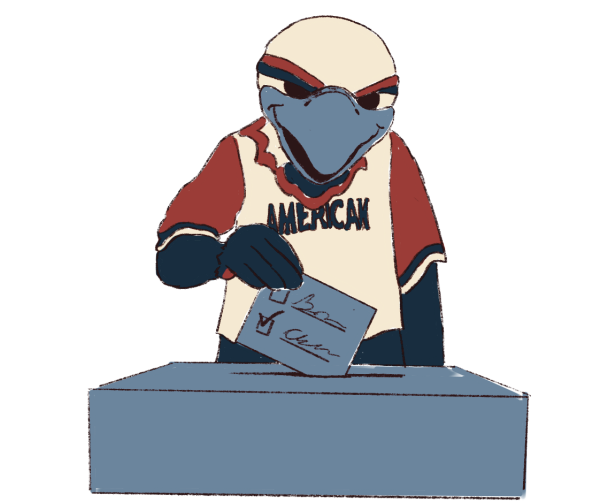
Cecelia Rhodes, a Massachusetts voter and a junior at AU, was living in the AU dorms during the 2020 election. She said her ballot didn’t make it to Massachusetts because it arrived to AU the day before the election. She said she believes AU’s mailing system was a large part of the delay.
“I asked [AU Mailing] when the ballot was brought to the mailroom, and they were like, ‘Yeah, I don’t know, it takes a few days,’” Rhodes said.
Elizabeth Deal, assistant vice president and deputy communications officer for AU, said Mailing Services has a process to sort ballots and correct incomplete addresses.
“Ballots are prioritized upon arrival at Mail Services from the U.S. Postal Service and sorted into student mailboxes on Mondays, Wednesdays and Fridays,” Deal said. “Any ballot with an incomplete address is researched and corrected the same day it is received, then placed in the student’s mailbox. For students who no longer reside on campus, their ballots are held for one week before being returned to the sender.”
Deal said students who live off-campus but who have their mail delivered to AU can get their ballot from Mailing Services in Letts Lower Level if they show a government ID.
Handling the process
Reece said Mississippi was another one of the most complicated states in terms of voting absentee. It requires a request for the ballot to be mailed along with a notary, according to the Mississippi state website. It is also the only state that does not offer either no-excuses absentee voting, where the state doesn’t require absentee voters to provide an explanation for why they can’t vote in person, or early voting, which dis- proportionately affected Black voters as Mississippi has the largest Black population in the country, according to the Brennan Center.
Mississippi was one of 28 states to offer no-excuses absentee voting in 2024, according to the National Conference of State Legislatures. The district offers no-excuses absentee voting, too. Washington and eight of the 28 states allow voters to join a list that automatically sends them a mail-in ballot, with 11 more states offering that list for voters who meet certain criteria, such as having a disability, according to the NCSL.
Forty-one states, the Virgin Islands and Washington require a signature for absentee ballots, and 31 of those states conduct signature verification, according to the NCSL. Seven states require either a witness or a notary. Mississippi, Missouri and Oklahoma require a notary with no option for a witness.
The Bender Library absentee voter registration event’s organizers posted a list of states where there are more specific requirements for voting absentee, like a notary, an affidavit, a written oath, in-person registration and more.
Reece said she wanted the event to be a place for eager absentee student voters to navigate the complicated systems that stood in their way.
“Most of our students, because of the situation with D.C. where we don’t have, frankly, full voting rights, we don’t have any federal election officials, most people would prefer to vote at their permanent address,” Reece said. “But every single jurisdiction does it differently, and it’s very, very difficult to navigate.”
Apart from the library, some students looked to Voters of AU for help navigating the ins and outs of their individual state’s voting process.
Bender Library partnered with Voters of AU, a student-run voting advocacy club that encourages and assists students in voting, for the event. Club President Emma Baumgarten said Voters of AU educates students on absentee voting more than almost anything else, second only to voter registration.
Student voters came to Baumgarten saying they didn’t receive their absentee ballots, despite going through all of the required steps. In response, Baumgarten said, the club helped them register to vote in Washington, which has same-day voter registration, so those who qualify to vote in the district could register to vote on Election Day.
According to the U.S. Vote Foundation, a U.S. citizen is eligible to vote in Washington if they are at least 18 years old on Election Day and have lived in the district for at least 30 days prior to Election Day. A Washington voter cannot be registered to vote in another state. Out-of-state students attending school in Washington are eligible to vote in the district.
Baumgarten said it can be disheartening to see students go through all of the necessary steps to vote in their home state only to never receive their ballot, but the district’s same-day registration offers some hope.
“It sucks when that happens, because it does feel like the system isn’t working,” Baumgarten said. “But the good thing is that students can same-day register to vote in the District of Columbia.”
Still, because Washington only has three electoral votes, some students know their vote may have more weight in their home state. Eid is from Pennsylvania, which consistently polls as one of the most contentious states in the election, according to the Commonwealth Foundation, an organization that advocates for policies that support individual constituents, schools and local businesses. Pennsylvania has 19 electoral votes, the fourth most of all 50 states.
For her, being able to cast a Pennsylvania ballot is incredibly important.
“I’m really excited that I get to vote in Pennsylvania because it is a big factor in this election, and it’s a really important state when it comes to presidential elections, so I do want to make sure that I still vote in Pennsylvania,” Eid said.
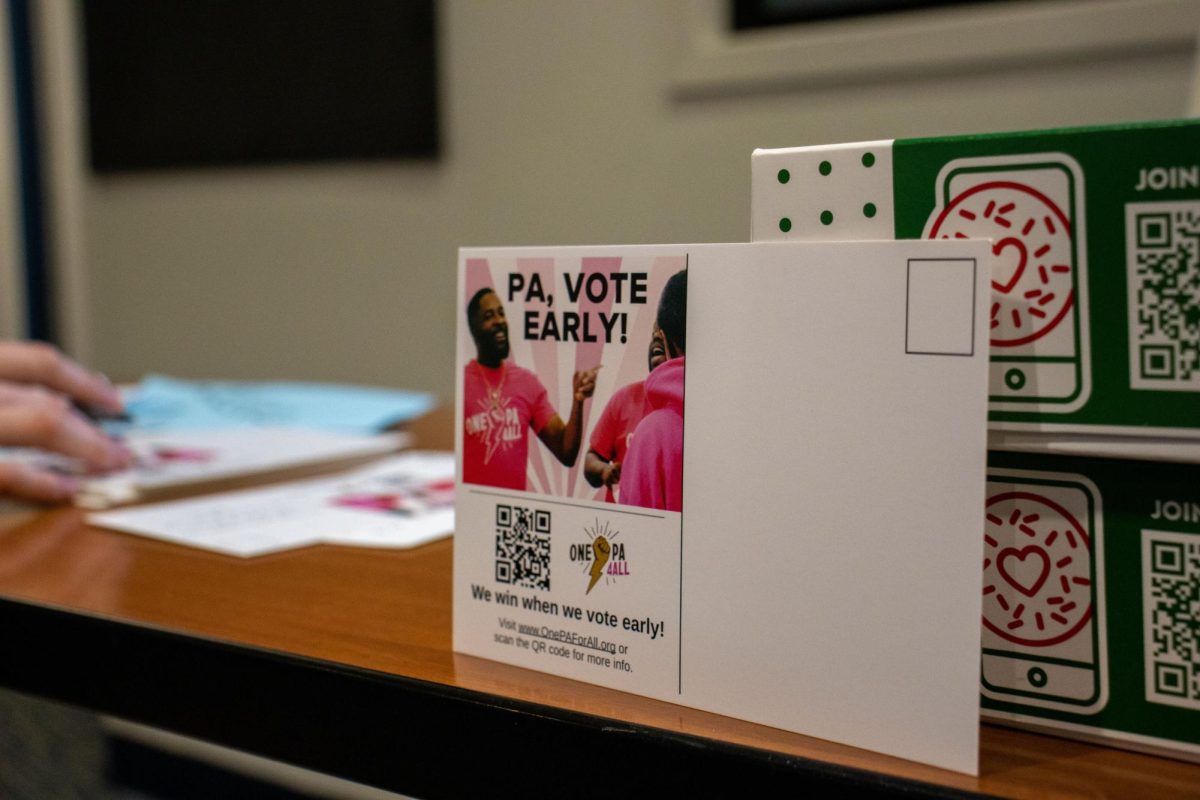
Before the election, Eid also said her county, Allegheny, was one of the main counties which may decide which way Pennsylvania will swing.
In the months leading up to the election, Voters of AU posted graphics about how to vote absentee on their Instagram account, and students asked questions about how to vote absentee on their Instagram account, and students asked questions about how they could navigate the absentee voting process, according to Baumgarten. She said having a student-run organization to help students vote was helpful.
“I think just having a student group be available to other students makes it less intimidating because we’ve done a lot of tabling to register students to vote and to let them know that absentee ballot days [at the library] are happening, and we’ve had a lot of students come up to us and ask us about their specific situation,” Baumgarten said.
Hazel Bernhard, a first-year from Massachusetts, registered to vote absentee at the library’s event. Last year, they ordered an absentee ballot to their home in Massachusetts months in advance, but didn’t receive it until after election day.
“I requested it in July, I think, possibly August,” Bernhard said. “I was home though, so that’s all I know. It arrived later than it should have, and I was very disappointed.”
Rhodes said she wanted to vote because she feels it gives her the justification to criticize the government if she disagrees with their policies or actions.
“I’m not a senator, I’m not a representative, I don’t work for the government, I can’t control that kind of stuff,” Rhodes said. “If I vote, then at least I get some say.”
Baumgarten first became interested in voting after watching her parents vote absentee in 2016, she said. Now that she’s working in voter advocacy at AU, her own experience has shaped her belief in the importance of voting.
“Even if you’re not voting for yourself, you’re voting for the people you care about, your peers, your family, your friends, your community,” Baumgarten said. “I just think it’s important for people to vote because you’re able to share how you want to see your community around you be treated.”
This article was originally published in Issue 35 of AWOL’s magazine on November 19, 2024. You can see the rest of the issue here.



